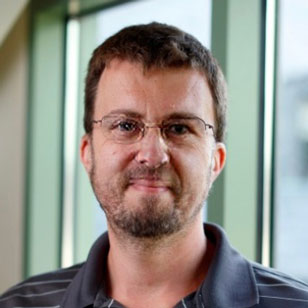
David Wild
The Crisis Technologies Innovation Lab, a partnership between the Luddy School of Informatics, Computing, and Engineering and IU’s University Information Technology Services, has been awarded a $2.2 million contract from the U.S. Army’s Telemedicine and Advanced Technology Research Center (TATRC) to create a platform that enhances patient care for COVID-19 and provides better responses to disasters.
The Technology in Disaster Environments Learning Accelerator (TLA) will use data science and performance science along with extensive data sources to find best practices for improving care for COVID-19 as well as develop insights into how technology can be used to improve disaster response and recovery in general. The project is part of the National Emergency Tele-Critical Care Network, which brings high quality critical care support to any bedside.
“NETCCN addresses a critical problem for COVID19 healthcare: there is a shortage of critical care trained clinicians,” said David Wild, the director of CTIL and a professor at the Luddy School. “NETCCN is an evolving network of clinical care teams that provide expert medical advice to anyone who needs it, wherever they may be, using network-enabled mobile devices such as cell phones, tablets, and computers.”
The TLA brings together four organizations with strong expertise in crisis, medical, and disaster science, including CTIL, Organizational Performance Systems, Disaster Tech, and Data2Discovery. Wild will serve as the director of the project with Indiana University as the lead institution.
“CTIL brings a broad array of capabilities, including data science, user experience engineering, and disaster technology research expertise to the project,” Wild said. “It is fast becoming the leading national-level lab in crisis and emergency technology research and data science. This project provides an exciting new area of application for our capabilities. We’re leading a team that is reimaging and redesigning disaster medicine to be more efficient, accessible, and effective.”
The Telemedicine and Advanced Technology Research Center fosters research on health informatics, telemedicine/m-Health, medical training systems, and computational biology to address gaps in United States Department of Defense medical research programs and military healthcare. TATRC continues to partner with numerous universities, commercial enterprises and other federal agencies supporting a multitude of projects. TATRC’s vision, as an important extension of its legacy, encompasses the creation of opportunities for technology transfer to the public sector as well as the battlefield.
“We’re thrilled to enter into this important collaboration with NETCCN and our various partners to make a real-world impact in the realms of disease and disaster response,” said Dennis Groth, interim dean of the Luddy School. “CTIL has quickly established itself as a leader in disaster response, and this project will help shape the way care is provided for those in need, especially in areas where critical care is limited.”

